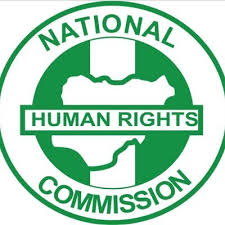The National Human Rights Commission (NHRC) has raised serious concerns about the growing role of artificial intelligence (AI) in facilitating the spread of hate speech through digital technologies.
Executive Secretary of the Commission, Dr Tony Ojukwu SAN, voiced these concerns during a roundtable held to mark the 2025 International Day for Countering Hate Speech.
He warned that hate speech threatens democratic principles, social cohesion, and fundamental human rights.
“Hate speech is not just a threat to individual dignity, it is a direct attack on democratic value and social cohesion,” Ojukwu said.
“It violates the right to dignity of the human person, the right to be free from discrimination, and the right to participate in public life without fear of suppression or violence.”
He noted that this year’s theme encourages critical reflection on the intersection of technology and human rights, especially how AI can simultaneously drive development and amplify harmful narratives.
Ojukwu pointed out that generative AI is rapidly transforming the production and dissemination of information, making it easier for hate speech to be generated and spread.
“The same technologies that empower innovation can also be exploited to generate, amplify, and target hate speech with unprecedented speed and reach,” he said.
“This scenario portends dangers for the enjoyment of the right to privacy as guaranteed by Section 37 of the 1999 Constitution.”
He explained that tools such as algorithmic targeting, manipulated images, deepfakes, and automated bots enable the widespread circulation of discriminatory content, often evading regulation.
If unchecked, he warned, these technologies could incite violence and reinforce dangerous stereotypes.
“The threat of hate speech in the digital age is real. But so too is the power of solidarity, informed voices, and ethical leadership for the enjoyment of the human rights dimensions of these emerging technologies,” Ojukwu said.
“Let us not allow algorithms to shape our humanity. We must remain vigilant, we must remain united, and we must act online and offline in defence of dignity, truth and justice.”
He called on media practitioners, youth, and digital platforms to collaborate in building a Nigeria where human rights are fully respected and protected.
Ojukwu also reissued a 12-page advisory on countering hate speech, originally published on 18 June 2023.
Ms Adwoa Kufuor, senior human rights adviser to the United Nations resident commissioner in Nigeria, conveyed greetings from Mr Mohammed Tall and reaffirmed the UN’s support for NHRC’s fight against hate speech.
“Hate speech is on the rise worldwide. It is more on social media; social media has given a lot of misinformation,” she said.
“Hate speech has turned into a business, it is used as a weapon to destroy. The mix between hate speech and AI is very dangerous.”
She added that tackling hate speech remains a priority for the UN.
Mr Hiliary Ogbonna, senior human rights adviser to the NHRC, emphasised the media’s role in spreading political hate speech.
“What we have also seen is the centrality of the media in purveying these hate speeches,” he said.
“Today is a stark reminder to all of us that we need to ensure that our politics is clean and free from hate speech.”
He warned that political hate speech often leads to violations such as voter suppression, disenfranchisement, and electoral violence.
“Now, in terms of prohibition, our Electoral Act in Section 92 prohibits all forms of hate speech,” he added.
Correspondent reports that in July 2021, the UN General Assembly raised concerns about the global rise of hate speech, recognising the need to counter discrimination and xenophobia in accordance with international human rights law.
June 18 has been designated as the International Day for Countering Hate Speech.
(NAN)


